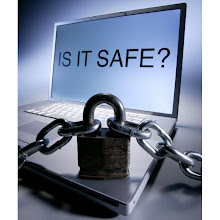
Companies have different policies for notifying customers when they discover that someone has accessed a customer database. However, you should be aware of changes in your normal account activity. The following are examples of changes that could indicate that someone has accessed your information:
unusual or unexplainable charges on your bills
phone calls or bills for accounts, products, or services that you do not have
failure to receive regular bills or mail
new, strange accounts appearing on your credit report
unexpected denial of your credit card
now after knowing your identity has been stolen ,comes another important question
"What can you do if you think, or know, that your identity has been stolen? .
Recovering from identity theft can be a long, stressful, and potentially costly process. Many credit card companies have adopted policies that try to minimize the amount of money you are liable for, but the implications can extend beyond your existing accounts.
dear my friend do you what should you do now? what actions you must have? please give me your ideas .
thank you
sanaz




